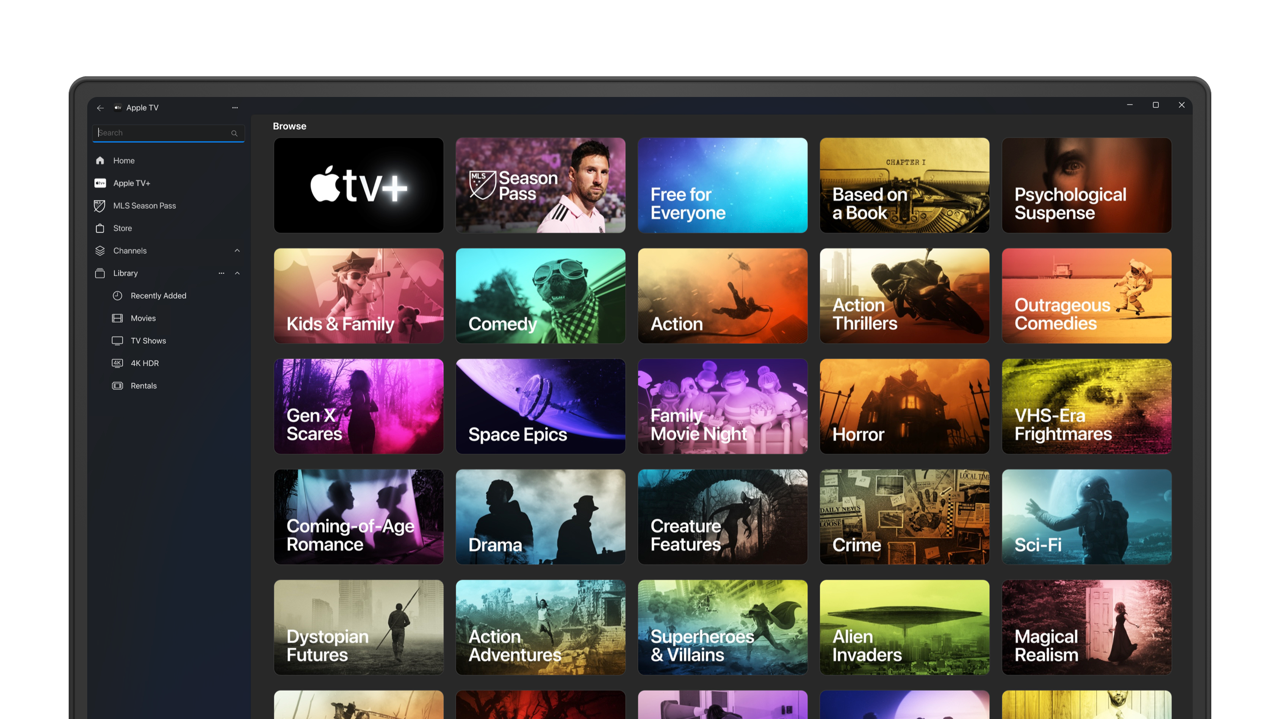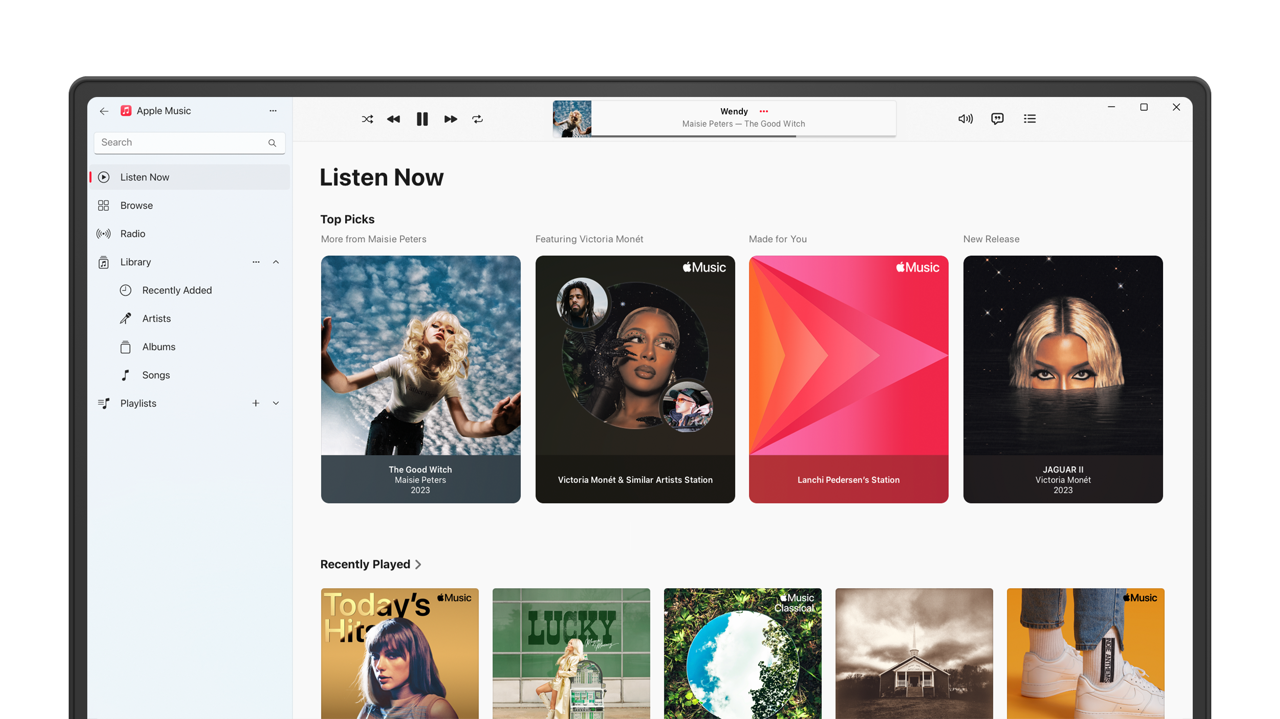
The iTunes for Windows app has just received a sweeping overhaul. The app has now been split into four different entities: an iCloud app, Apple Music, Apple TV and a new Devices app. These new apps offer a refreshed onboarding and set-up experience, aesthetic improvements and a more intuitive syncing process that’ll make downloading your iCloud content to your PC much easier.
Even now, after all these years, iTunes in Windows 11 hasn’t improved in a sufficient way to win me over. For a long time, it’s remained clunky and slow and honestly just not that helpful. Using the app in Windows feels like navigating a twenty-year-old bit of software.
Thankfully, it seems like Apple has finally gotten the hint and has decided to dissect it and offer four separate apps that concentrate on specific features and use cases, rather than being a jack-of-all-trades as iTunes often felt like. This move could hint at the swift death of iTunes altogether, as the app is now even more redundant.
So, what's new?
iCloud Photos gets a big boost that brings the Windows 11 app on par with the preinstalled apps you find on Apple Macs, offering the ability to create Shared Albums on your PC, and access and remove photos and videos from your cloud storage directly from your PC. Perhaps my favourite new feature is that you can now view your photos directly from the default Microsoft Photos app in Windows 11.
Being able to view all your photos, both from your PC and from your phone in one place in the Windows Photos app is an incredibly convenient change. If you need something for work or you just want to send a few photos in an email to someone, you now don’t have to use different apps and trawl folders to find what you need, now you can just open the default photo app on your Windows 11 PC and have all your photos in one place - making the process a lot more seamless - and more like the experience iCloud users on Apple devices are used to.

The new iCloud Drive app will now let you share files with friends, family and colleagues straight from File Explorer, which again is such a time-saving integration that makes your Apple device feel more at home with your Windows PC. Not every iPhone user will own a Mac or MacBook, and it’s great to finally see Apple implement changes that mean iPhone users with Windows 11 laptops and PCs don’t feel like second-class citizens.
Password management across your iPhone and your PC will be a lot smoother as well, so if you happen to forget any of your passwords you can just view them in the iCloud Passwords app on your Windows PC without having to pick up your iPhone or iPad. Your passwords will also be saved and synced across not just your Apple devices but to your PC as well via the Chrome and Edge web browsers with an iCloud Passwords extension. Again, this is great news for people who use PCs and need to quickly log into their accounts without having to fumble with their personal devices.
Finally, your Apple Calendars, Bookmarks and contacts will be synced up on your PC as well, so you’ll be able to view your iCloud Calendar in Microsoft Outlook. This applies to both the free version that comes with your PC and the paid version for Microsoft 365 subscribers.

The Apple Music app has also received a refresh to its user interface as well as time-synced lyrics and 4K music videos, which is a feature in the iOS and iPad versions of the app. The Apple TV app for Windows is a new addition that aims to bring your viewing library to your desktop, which is great news for those of us who like to have a show or a movie in the background while you work on personal projects. I love binge-watching TV shows while playing games on my PC, and this is great news because it means I won’t have to prop my iPhone up by my display just to watch something at the same time.
The fourth app being introduced to Windows is called 'Devices' and offers a straightforward way for you to keep track of what devices are connected to your iCloud account, as well as allowing you to sync, update and backup your Apple devices right from your desktop. This means the iTunes app will be left with Podcasts and Audiobooks for now, with all the other features split between these four apps. So, you won’t lose any of your favourite bits of audio content.
The implementation of these new apps adds a more contemporary feel to the Apple experience on Windows. All these positives combined will hopefully make it feel less like you’re using an ancient app that’s been ignored for several years.
Overall, this is a positive move from Apple that finally brings some much-needed improvements to PC users who want to sync up their iPhones to their devices. This way you get the best out of the Apple ecosystem file-sharing experience without having to own an actual Mac.







